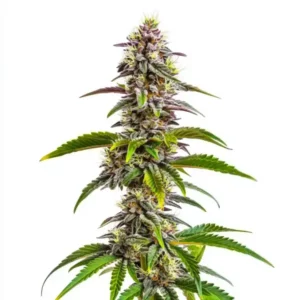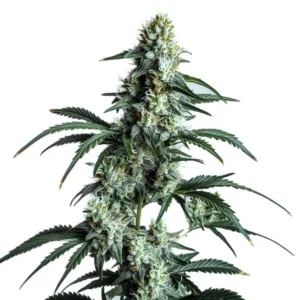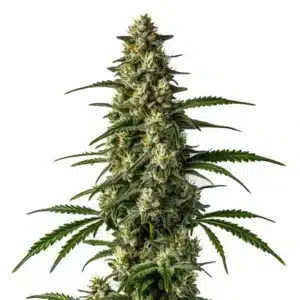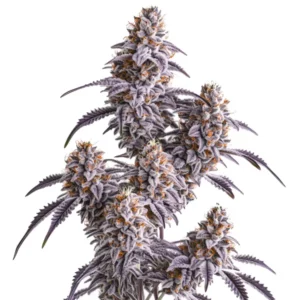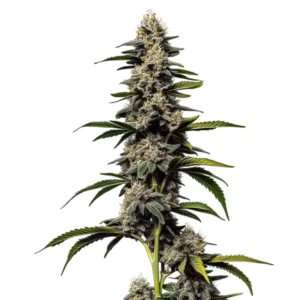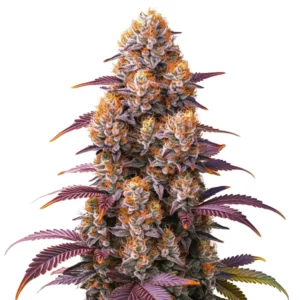
Best Soil for Clones: Set Your Plants Up for Success
Choosing the best soil for clones is one of the most critical steps to ensure strong, healthy growth. This includes understanding what makes the best soil for clones effective for root development. Your clones rely on a balanced environment that supports root development, moisture retention, and nutrient uptake. Let’s dive into what makes the ideal soil for cannabis clones and how to prepare it for maximum success. The best soil for clones should provide moisture retention and aeration.
Importance of Well-Draining Soil for Healthy Roots
Indoor growing allows for precise control, but it also means you need the best soil for clones: a blend that retains moisture without becoming oversaturated. An ideal mixture for indoor clones should include organic potting mix, perlite, and coco coir. Organic potting mix provides a nutrient-rich base that supports early growth, while perlite ensures proper aeration and drainage.
Recommended Strains
Blue Amnesia Auto
|
|
THC | 17% - 18% (Medium) |
|
|
Type | Autoflowering |
|
|
Yield | Low |
|
|
Phenotype | 40% Indica / 60% Sativa |
Blue Amnesia Regular
|
|
THC | 22% - 24% (Medium) |
|
|
Type | Regular |
|
|
Yield | High |
|
|
Phenotype | 30% Indica / 70% Sativa |
To prepare this blend, combine 60% organic potting mix with 20% perlite and 20% coco coir. The coco coir helps in moisture retention, which is particularly crucial in indoor environments that tend to be drier. Enhancing this mixture with worm castings or compost can provide an extra nutrient boost. This setup offers a balanced medium, allowing your indoor clones to develop strong roots and healthy foliage.
Balancing Soil pH for Optimal Nutrient Uptake
The pH level of your soil directly affects your clone’s ability to absorb nutrients. Cannabis clones thrive in a slightly acidic environment, with a pH range of 6.0 to 6.5. When the soil’s pH strays too far from this range, it locks out essential nutrients, causing deficiencies that stunt growth and impact overall plant health. Regularly testing the pH of your soil mix is a simple yet effective way to ensure your clones have what they need to flourish.
Adding organic materials like compost or worm castings not only boosts the soil’s nutrient content but also helps stabilize its pH. If you notice pH imbalances, use natural amendments such as dolomite lime to raise the pH or sulfur to lower it. By keeping the pH in check, you ensure that your clones can absorb nutrients efficiently, promoting vigorous growth and robust foliage.
Key Ingredients to Look for in the Best Soil for Clones
Selecting the best soil for clones means understanding the ingredients that make up a high-quality mix. Let’s explore the components that provide the right balance of nutrients, moisture, and structure to support clone development.
Organic Matter in Clone Growth
Organic matter, such as compost, worm castings, and peat moss, is essential for creating a nutrient-rich environment that supports healthy clone growth. These natural materials introduce beneficial microorganisms into the soil, enhancing its fertility and promoting nutrient uptake. When cannabis clones are planted in soil with plenty of organic matter, they benefit from a steady supply of essential nutrients like nitrogen, phosphorus, and potassium.
Worm castings, in particular, are a powerhouse addition to your soil mix. They improve soil texture, increase water retention, and provide a slow-release source of nutrients. By using soil rich in organic matter, you help create a thriving ecosystem around your clones’ roots. This living soil not only supplies nutrients but also protects against harmful pathogens, giving your clones a strong start.
Benefits of Perlite, Vermiculite, and Coco Coir in Clone Soil
Perlite, vermiculite, and coco coir are three key ingredients that enhance the structure and moisture regulation of your soil. Perlite is a lightweight volcanic rock that aerates the soil, promoting root growth by allowing oxygen to reach the roots. Its porous nature also prevents compaction, ensuring water drains freely through the soil.
Vermiculite, on the other hand, retains moisture while providing some drainage. It helps keep the soil consistently moist, which is crucial for young clones that require a steady supply of water to establish their roots. Coco coir is another excellent addition; made from coconut husks, it holds moisture well and provides a neutral pH, making it a perfect base for your soil mix.
Combining these ingredients creates an environment where your clones can thrive. Perlite provides aeration, vermiculite retains moisture, and coco coir offers a stable medium for root growth. Together, they ensure that your clones have access to both water and oxygen, fostering strong and healthy root systems.
Promos & Deals
Best Soil Mixes for Different Types of Clones
Not all clones have the same needs. The best soil for clones can vary depending on whether you’re growing indoors or outdoors. Tailoring your soil mix to your growing environment maximizes your clones’ potential.
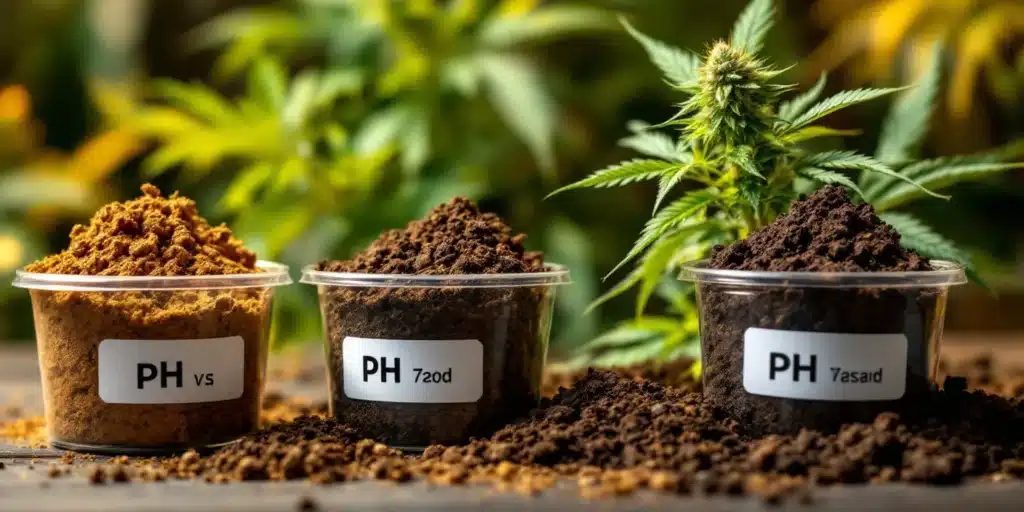
Soil Mix for Indoor Cannabis Clones
Indoor growing requires a soil mix that provides excellent drainage while retaining enough moisture to sustain your clones. A blend of organic potting soil, perlite, and coco coir is ideal. Start with a high-quality organic potting soil as the base. This soil already contains some nutrients, offering your clones a solid nutritional foundation. Next, mix in 20-30% perlite to improve drainage and aeration. This combination prevents the soil from becoming too compact in containers, allowing roots to breathe and grow freely.
Add 20% coco coir to the mix to help retain moisture without waterlogging the roots. Indoor environments can be drier, so the moisture-retentive properties of coco coir help keep the soil evenly moist. You can also enhance this mix by adding worm castings or compost for an extra nutrient boost. This tailored indoor soil mix provides a balanced environment that promotes rapid root development and steady clone growth.
Outdoor Soil Options for Strong and Resilient Clones
Outdoor clones face different challenges, including fluctuating temperatures, wind, and rain. The best soil for outdoor clones is a mix that offers both structure and resilience. Start with a loamy soil, which is a blend of sand, silt, and clay, providing good drainage while holding enough moisture. Mix in compost or aged manure to improve soil fertility, giving your clones the nutrients they need to establish themselves in the garden.
Outdoor soil also benefits from the addition of organic matter like peat moss, which helps retain moisture during dry periods. To further enhance drainage, add perlite or coarse sand to the soil mix. This combination creates a robust environment that can handle outdoor conditions, supporting your clones through their entire growth cycle. By using a tailored soil mix, you give your outdoor clones the strength to thrive despite the elements.
I’ll continue in the next response, covering the preparation, avoiding common mistakes, and providing further tips for optimal clone growth.
How to Prepare Soil Before Planting Your Clones
Proper soil preparation is essential to ensure your clones take root and grow vigorously. Taking the time to create the ideal environment before planting will help prevent issues later in the growth cycle. Here’s how to prepare the best soil for clones and set the stage for success.
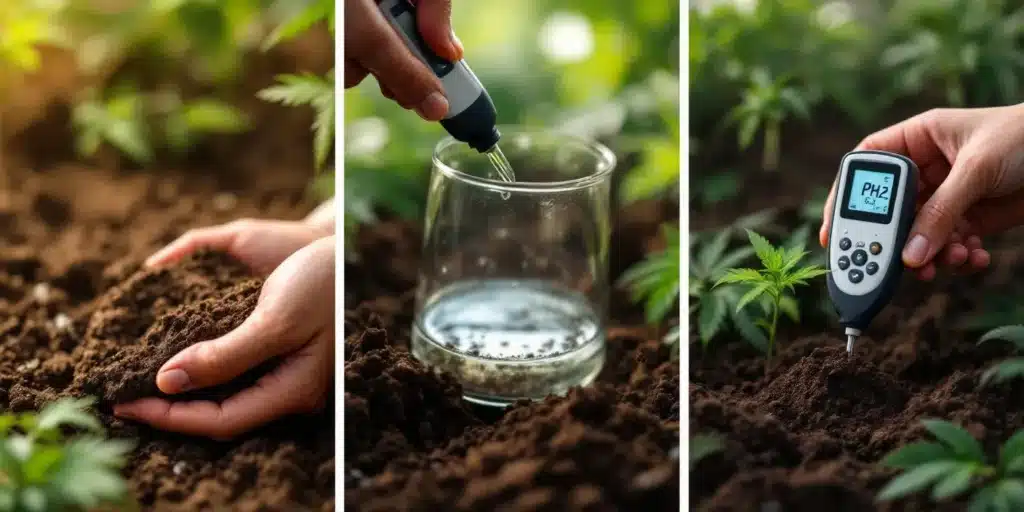
Pre-Soaking Soil for Moisture Retention
Pre-soaking the best soil for clones before planting is crucial, especially if you’re using coco coir or peat moss. These components can initially repel water, so moistening the mix ahead of time ensures that it can retain water efficiently. To pre-soak, fill your planting containers with the prepared blend and lightly water it using pH-balanced water. Mix it with your hands or a trowel to evenly distribute moisture.
Let the blend rest for about 15-20 minutes after watering. This allows excess moisture to drain, ensuring an evenly damp environment. Pre-soaking creates a welcoming space for clones, providing immediate access to the moisture they need for successful establishment.
Adding Mycorrhizae and Beneficial Microbes to Boost Growth
Incorporating mycorrhizae and beneficial microbes enhance nutrient uptake by forming symbiotic relationships with plant roots. To add mycorrhizae to your mix, sprinkle the inoculant onto the roots of your clones or blend it into the growing medium. Beneficial microbes can be introduced through compost teas or specific microbial supplements.
These natural additions create a rich environment, converting organic matter into nutrients that the clones can absorb. Using mycorrhizae and microbes strengthens root systems, making clones more resistant to stress and disease. Preparing the medium with these beneficial organisms promotes a healthy growth cycle.
Avoiding Common Soil Mistakes When Growing Clones
Even with the best soil, improper care can lead to problems that hinder growth. Knowing what to avoid helps you create a stable environment where your cannabis clones can thrive. Here’s how to sidestep pitfalls and keep your soil in peak condition.
Overwatering and Poor Drainage: What to Watch Out For
Overwatering is a common problem for cannabis clones. When the medium is overly saturated, roots cannot access enough oxygen, leading to root rot. To avoid this, choose a blend with perlite, vermiculite, or coarse sand to aid in water flow. These elements ensure excess moisture flows away from the roots, preventing stagnation.
Always check the moisture level before watering your clones. Insert your finger an inch into the medium; if it feels dry at this depth, it’s time to water. If still damp, wait a day before checking again. For indoor setups, use containers with drainage holes to prevent water accumulation. Proper watering techniques and a well-draining mixture keep your clones hydrated without risking root damage.
Recognizing Signs of Nutrient Deficiency in Clones
Nutrient deficiencies often arise from imbalanced growing environments. Signs such as yellowing leaves, brown spots, or curling edges can indicate issues like nitrogen, potassium, or magnesium deficiency. To prevent this, start with a nutrient-rich mix that includes organic matter like compost or worm castings.
If deficiencies occur, address them promptly with the necessary amendments. Organic fertilizers, compost teas, or supplements can restore balance. Regularly monitoring your clones and adjusting nutrient levels ensures the plants receive support for vigorous growth.
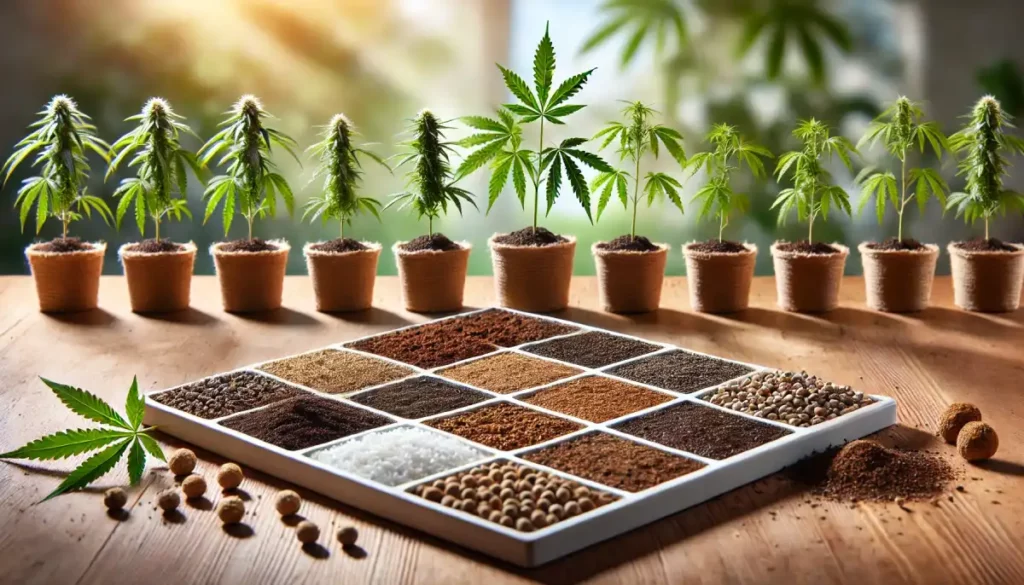
Choosing Soil Amendments for Clones: Tailoring Your Soil for Success
Different soil amendments can further enhance the best soil, giving you control over your growing conditions. Let’s explore how to use amendments like peat moss, vermiculite, and organic fertilizers to optimize your soil for clone growth.
The Benefits of Using Peat Moss in Clone Soil
Peat moss is an excellent addition to your soil mix, especially for indoor clones. It has a high moisture-retentive capacity while remaining well-aerated, providing an ideal environment for young roots to develop. Its slightly acidic nature is also beneficial, helping to maintain the optimal pH range for cannabis.
To use peat moss, mix it into your soil at a ratio of about 20-30% of the total volume. This amount is enough to boost moisture retention without causing the soil to become too dense. Peat moss is particularly helpful in dry climates or indoor setups where maintaining consistent soil moisture can be challenging. Incorporating peat moss into your soil mix creates a supportive medium that helps your clones establish strong, healthy roots.
Adding Vermiculite for Enhanced Water Retention
Vermiculite is another amendment that can benefit the mix for clones, particularly for outdoor growing. It improves the soil’s ability to hold water and nutrients, making it an ideal addition if your garden is prone to drying out. Vermiculite’s sponge-like properties allow it to absorb water and slowly release it, providing a steady moisture supply to the roots.
Mix vermiculite into your soil at about 10-20% of the total volume. This addition is especially useful for outdoor clones planted in areas with inconsistent rainfall or dry spells. By retaining moisture, vermiculite helps keep your clones hydrated and nourished, promoting vigorous growth throughout the season.
I’ll continue in the next response, focusing on specific soil mixes, final preparation tips, and answering questions related to choosing the best soil.
Best Soil Mixes for Different Types of Clones
The environment where you plant your clones greatly influences their growth. The best soil mix for clones varies depending on whether you’re growing indoors or outdoors. Let’s break down the optimal soil mixes tailored to each growing scenario.
Soil Mix for Indoor Cannabis Clones
Indoor growing allows for precise control, but it also means you need a blend that retains moisture without becoming oversaturated. An ideal mixture for indoor clones should include organic potting mix, perlite, and coco coir. Organic potting mix provides a nutrient-rich base that supports early growth, while perlite ensures proper aeration and drainage.
To prepare this blend, combine 60% organic potting mix with 20% perlite and 20% coco coir. The coco coir helps in moisture retention, which is particularly crucial in indoor environments that tend to be drier. Enhancing this mixture with worm castings or compost can provide an extra nutrient boost. This setup offers a balanced medium, allowing your indoor clones to develop strong roots and healthy foliage.
Outdoor Soil Options for Strong and Resilient Clones
Outdoor cannabis clones need a mix that can adapt to changing weather conditions. Loamy blends serve as an excellent base for outdoor cultivation because they offer a balanced combination of sand, silt, and clay, providing both effective drainage and moisture retention. Start by using high-quality loam, then enrich it with compost or aged manure to boost fertility.
To further enhance resilience, mix in 20% perlite or coarse sand to improve water flow, preventing oversaturation during heavy rains. Adding organic materials like peat moss or coco coir helps in retaining moisture during dry spells. This blend creates a supportive environment that allows outdoor clones to thrive through the growing season.
How to Prepare Soil Before Planting Your Clones
Once you’ve chosen the best mixture for clones, proper preparation is key. Prepping ensures your clones have a smooth transition, promoting vigorous root development.
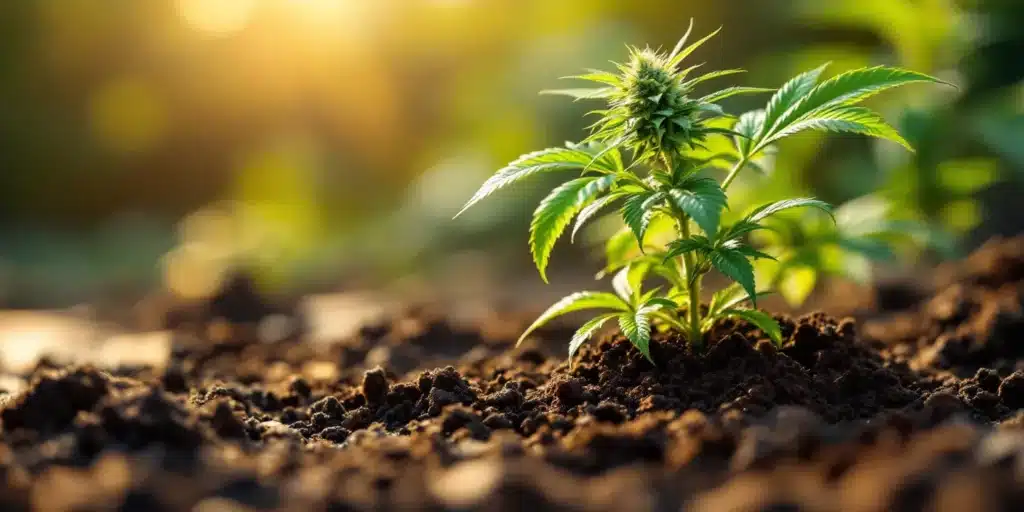
Pre-Soaking Soil for Moisture Retention
Pre-soaking the blend before planting is crucial, especially if you’re using coco coir or peat moss. These components can initially repel water, so moistening the mix ahead of time ensures that it can retain water efficiently. To pre-soak, fill your planting containers with the prepared blend and lightly water it using pH-balanced water. Mix it with your hands or a trowel to evenly distribute moisture.
Let the blend rest for about 15-20 minutes after watering. This allows excess moisture to drain, ensuring an evenly damp environment. Pre-soaking creates a welcoming space for clones, providing immediate access to the moisture they need for successful establishment.
Adding Mycorrhizae and Beneficial Microbes to Boost Growth
Mycorrhizae fungi and beneficial microbes are powerful allies in promoting clone health. These additives enhance nutrient uptake by forming symbiotic relationships with the plant roots. To incorporate mycorrhizae into your soil, sprinkle the inoculant onto the roots of your clones before planting or mix it into the soil. Beneficial microbes can be added through compost teas or specific microbial supplements.
Using mycorrhizae and microbes enriches the soil, breaking down organic matter into nutrients that the clones can readily absorb. This natural boost strengthens your clones’ root systems, making them more resistant to stress and disease. By preparing this with these beneficial organisms, you set up a thriving root environment that supports vigorous growth throughout the clone’s lifecycle.
Additional Tips for Maintaining the Best Soil for Clones
Caring for this throughout the growth cycle of your clones is crucial. Consistent maintenance not only helps prevent issues but also ensures that your plants have access to everything they need to flourish.
Mulching for Outdoor Clones
Mulching is a great technique for outdoor cultivation. Adding a layer of organic mulch, such as straw or shredded leaves, helps retain moisture and regulate temperature. As mulch decomposes, it enriches the growing environment further. Apply a 2-3 inch layer around the base of your outdoor clones, avoiding direct contact with the stems to prevent rot.
Regular pH Monitoring
Maintaining the correct pH in the soil is vital for nutrient uptake. Cannabis clones prefer a slightly acidic soil environment, with a pH of 6.0 to 6.5. Use a soil pH tester to regularly monitor the pH levels of your soil. If you notice the pH drifting outside the optimal range, adjust it using natural amendments like lime to raise pH or sulfur to lower it. By keeping the pH balanced, you ensure your clones can absorb nutrients effectively, supporting strong growth.




